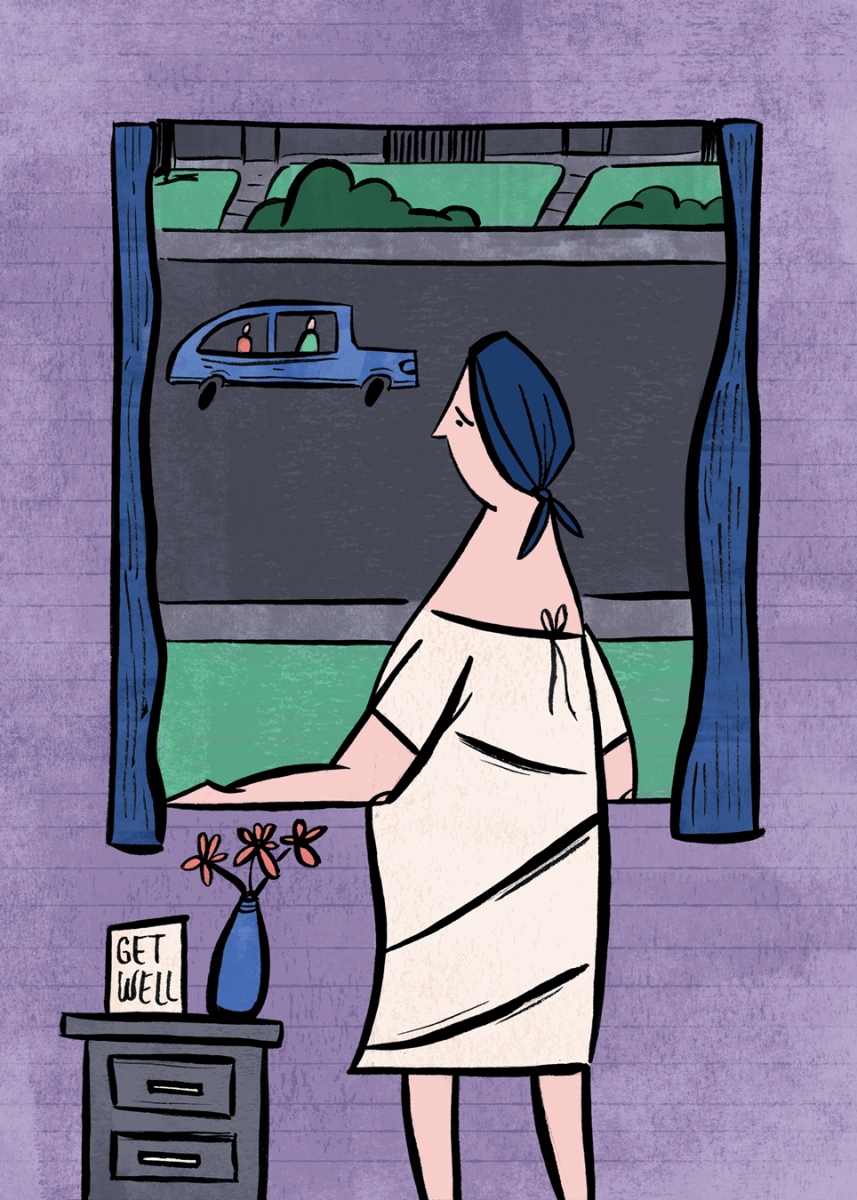When I was a child, the Cross Cancer Institute held a morbid fascination for me.
Nobody I’d ever known had been inside. It was a place we quickly drove past, gum-chewing momentarily checked while we watched headscarved women and too-thin men slip inside. The word “cancer” right there on the sign seemed almost indecent, casting a pall over the entire block and making me feel obscurely guilty for my good health.
“Say a little prayer for them,” my dad would say.
Reading Solzhenitsyn’s Cancer Ward at university in Montreal, I thought of the Cross, Edmonton’s own cancer gulag on University Avenue. Back then, cancer was academic, as far removed from me as the bleak Russians in the book, as the Soviet Union itself.
Twenty years later, I’ve come to know the Cross intimately. It holds no mysteries for me after years of treatment and clinical trials. I know its smell. I know its trigger-happy sliding front doors with the inevitable, furtive smoker sneaking a defiant puff outside of them. I’ve paced all its halls lined with the artwork of former patients. I’ve stared out its windows, watching people on the other side of the divide drive quickly past.
I carry its identification; a number, a tiny dot-tattoo, an identity card. I’ve waited in its lineups – for sandwiches, blood tests, expensive parking, scans, a cup of Earl Grey tea, a humming radiation machine, a bag of chips or a bag of chemotherapy meds. I’ve rifled through its dollar racks of donated hardcovers, browsed the pop-up sales in the lobby and listened to tunes plucked out on the lobby piano by other people who had to be there.
I’ve met its tenants. The diligent medical ones, but also the kind volunteers offering coffee and cookies, harp music and head shaves. There are stoic old veterans swapping stories and women wearing hats and wigs and heasdscarves, or walking bald and free in a place where there’s a sense of understanding.
And I know that, while sorrow and existential dread run like a dark river under the surface, above ground there is polite small talk, dogged determination, dark humour and fierce practicality. It is Tim Hortons up top, and bubbling Solzhenitsyn down deep.
